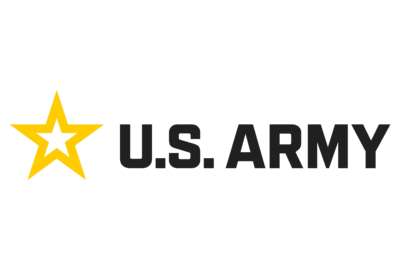This marketing agency is helping the armed services with recruitment
The big military story for the United States concerns the ongoing recruitment crisis. Not enough young people are joining up.
The big military story for the United States concerns the ongoing recruitment crisis. Not enough young people are joining up, so the armed services are revamping their marketing approaches. One company helping in that effort is called the Refuel Agency. To find out more about this effort, the Federal Drive with Tom Temin talked with Refuel’s Senior Vice President for the Military Market, Liz Carmo.
Interview Transcript:
Tom Temin Tell us about some of the efforts that you are doing on behalf of the military service branches to try to rev up their recruitment efforts, because they do have a big problem getting enough bodies in those recruitment doorways.
Liz Carmo Yes. That’s correct. You know, I’d say we’re dealing with a different generation, a different time. And we always focus on a research-based approach of saying, we may know we have boots on the ground, many different locations around many different bases, and we see how the military has changed through the years. Specifically, our corporation, Armed Forces Communications, doing business as Refuel Agency. We’ve been around for 37 years. 37 years ago, was a very different military than it is today. The recruitment challenges are there, and the recruitment profile is really a family history industry. We’re seeing that 51%, 52% are enlisting because of family history. And that’s the biggest change that there has been over the years. It’s not for benefits. It’s not for the respect and honor family history has really come for. So, we need to change that, right? We have to be able to be more competitive with jobs. We have to be able to really show them the outcome, what comes in career advancement within the military. But also, you know, how are you going to get out and how are we going to support you? So, we run a military explorer study annually. That really goes into the lifestyle and consumer insights, shopping patterns, education, career plans, post active-duty plans. And we’ve been doing it for over ten years now. And really the questions that are asked, can drill down to branch of service. They can drill down to veterans of Vietnam era to post 911 Veterans Reserve and National Guard. Many different profiles that we’re looking at to see how things have changed. The biggest thing is that when we did have, you know, recruiters who were unable to access like ROTC programs in school, they’re unable to really be in community because of Covid. We saw a big gap happen, right? It was really social media. It was anything on the news that people were hearing about what was going on. You know, with military in the military culture where we were globally and without like the truth and the voice and the advocacy that was on the ground from recruiters, I think really we lost a few years.
Tom Temin What about those people that are of recruitment age now and they are different from the ones 37 years ago, even seven years ago. They’re often not in good shape physically, or they have been fed TikTok and other propaganda forms that might degrade the military in their eyes, where they saw, you know, the quick withdrawal from Afghanistan, what a disaster that was. And they see what’s happening in war zones throughout the world and say, what do I want to sign up for that for? How do you overcome that perception that there are some great careers in the military? And yeah, you do have to go through boot camp, but it might do you some good.
Liz Carmo Yeah. Yes. And I think that really the core of why I say recruitment is primarily now for family history is because those who are in community understand that value, understand, you know, why doing this? Like I love this culture so much because it’s such a resilient and honorable, a disciplined community. And you don’t get that outside of the military. You really don’t. That’s why they make amazing employees. You don’t have, I’d say as much like of a lost community, right? Everyone thinks that they can be an influencer. You know, everyone can create their own business. Everyone can do everything. So, they don’t think that they need a career path or military career path to really put them in a successful point later in their life. And they don’t believe that they need to sacrifice their time and be away from family, you know, risk themselves in order to do so. So, I think the challenge and, you know, where we need to communicate to the audience is that this is to advance yourself, your family and your country. And in order to do that, recruiters and just the branches of service, DoD as a whole VA, we know that with military are the best recruiters in themselves. You know, we are not just having a recruitment issue. We’re having a retention issue. And if we do not treat the current and prior service with the benefits and respect that’s needed, you’re going to lose your biggest influential group, right? So, it’s two prong there. So, I think to the younger folks we need to say to those enlisting these are the benefits. This is the career path that you are able to see whether it’s four years, eight years, 12 years, 20 years like this is where you’re going to be honest in the service and out of service.
Tom Temin We are speaking with Liz Carmo. She is senior vice president for the military market at the Refuel Agency, and the Army will stick with them for a moment. Had different campaigns and slogans over the years. Be all you can be. I think recently they went back to the army of one idea. Or maybe they abandoned that in favor of be all you can be emphasizing.
Liz Carmo Army strong.
Tom Temin Army strong? Yeah. What are good messages today for the TikTok generation? For lack of a better word?
Liz Carmo I mean, the message is so individualized that you need to understand that this is a generation that even though it seems like they don’t care about cause-oriented initiatives because they seem so superficial in values, that’s not true. They do care about things that are made in America being socially responsible. So, it’s really what are we doing as a country to support them and for them to continue to support our country and to really make a social conscious, you know, decision where it’s like you think about military. In the past, it was very different. It was outside of the culture of civilians, two different worlds. We really see this merge happening, right? There’s much more of a military culture that is merging into civilian culture, and that is because of social media.
Tom Temin Right. And something you said to that, the idea that you have to market almost individually, that’s the new trend anyway, in marketing and advertising. Whereas a television ad on the Carol Burnett Show might have had impact 30, well, more than 30 years ago, maybe 40 years ago today, unless you were on the Super Bowl. And even then, that’s a question of how effective that is. It sounds like the military needs digital means to reach people at a much more microscopic level.
Liz Carmo Yeah, and there’s restrictions, right? There is DoD social policy that restricts certain mediums for being used, which puts them at a disadvantage of where this audience is engaging and spending a lot of time. That doesn’t mean that they can’t get creative and figure out different ways of embracing the community. But everything is about identity and marketing now, and that personalization, and they need to adopt, really, you know, private sector trends of how to do business in order to reach Gen Z.
Tom Temin All right. And just a quick question on some of the marketing campaigns that you have done on behalf of people selling stuff to military members that’s resulted in some contributions from your company back to military and specifically in the area of prostate cancer research.
Liz Carmo So our owners, Prospect Capital Private Equity, the company John Barry, donated to the Center of Excellence. I actually in Florida and Manhattan. And they just believe, you know, in this community greatly. And there’s different VA challenges for, I would say, accelerated medical care. And so, they’re trying to provide different research and testing for veterans with prostate cancer in order to advance them and get solutions out there. There was a very high incidence rate of prostate cancer against veterans.
Copyright © 2025 Federal News Network. All rights reserved. This website is not intended for users located within the European Economic Area.
Tom Temin is host of the Federal Drive and has been providing insight on federal technology and management issues for more than 30 years.
Follow @tteminWFED








